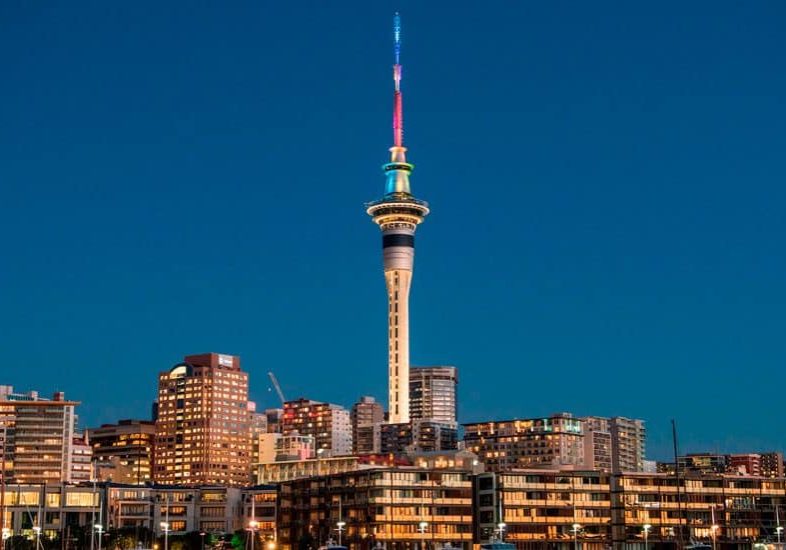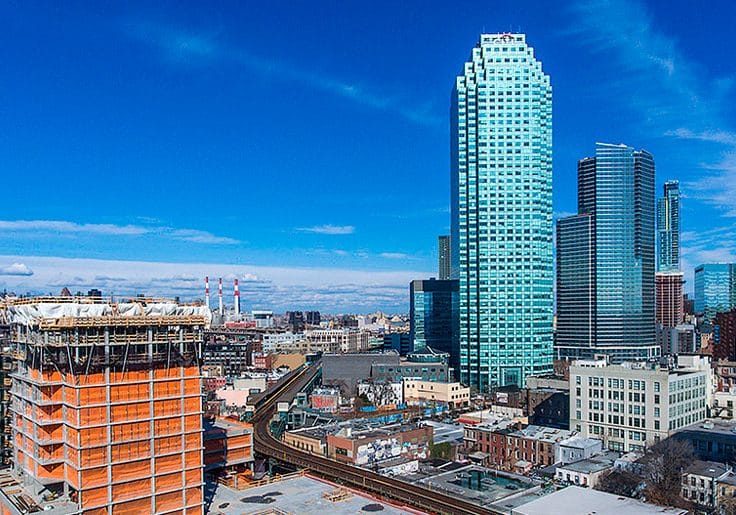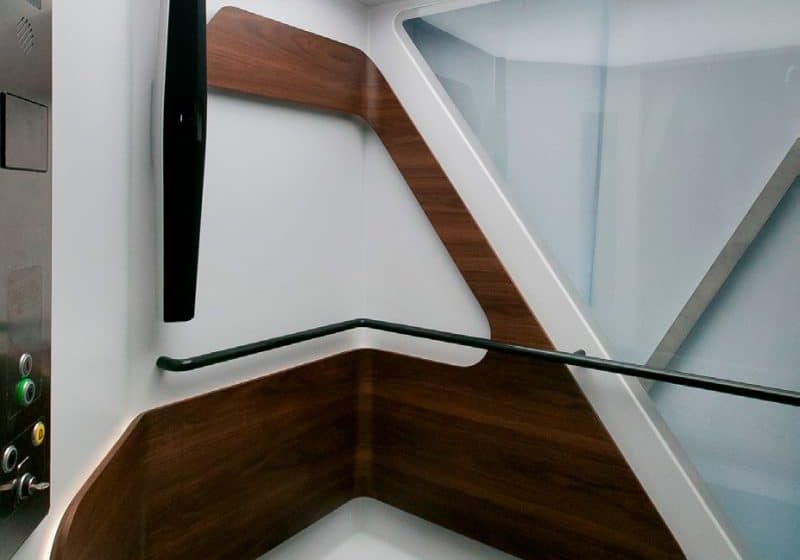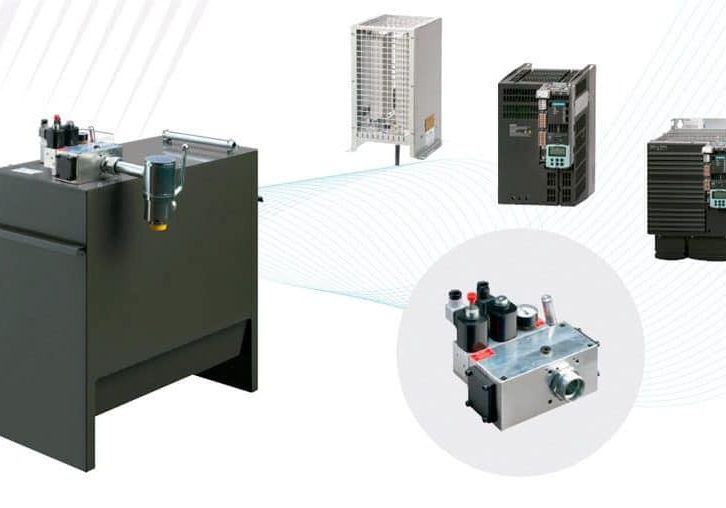From Berlin to Barbados
Feb 1, 2017
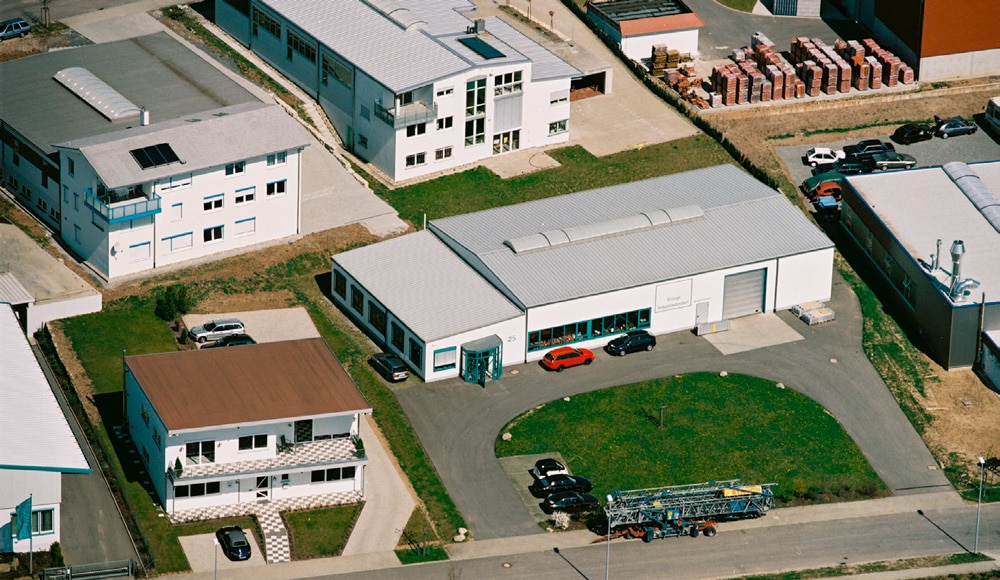
A small German business has grown into a go-to provider of crucial components for elevator construction and maintenance worldwide.
Anchor rails, scaffold tubes, ceiling hooks and work platforms: if it’s needed in an elevator hoistway during construction or maintenance, chances are Stingl can provide it. Its products have been ordered by customers in major cities worldwide such as Sydney; London; and São Paulo, Brazil, and in such far-flung locations as St. Lucia and Barbados in the Caribbean. Its signature MOBIL PANO work platform was used in the thyssenkrupp test tower in Rottweil, Germany (ELEVATOR WORLD, June and December 2014, and August 2016). Seventy percent of Stingl’s revenue is still generated in its home country of Germany, but the company prides itself on serving a good mix of independent elevator companies and OEMs on five continents. At press time, it was hopeful about breaking into the U.S. market.
That is quite remarkable for a business founded in 1979 by an engineer in his home in Bietigheim, Germany, near Stuttgart. At the time, the business consisted of just Leonhard Stingl (who is now semi-retired), his wife and daughter. “He is now in his 80s, but still sees old buddies from the industry at trade shows, etc.,” says Dirk Schoeffler, who has been with the company since 1997 and has a 49% stake in the international arm of it, Stingl Systems GmbH, which he runs with one of Leonhard Stingl’s sons, Alexander. The other arm, Stingl GmbH, is run by Alexander Stingl and Leonhard Stingl’s sister, Sabine Rothenburger. That division takes care of domestic customers. Between the two, the divisions have 15 full-time employees.
After receiving his engineering training through an apprenticeship at age 16 at a small company based in Augsburg, Germany, Leonhard Stingl began his career at that company in the late 1940s. By the time the young engineer had transferred into the sales department, the company had been taken over by a large OEM. At that time, Stingl decided to go into business for himself. Schoeffler elaborates:
“Realizing the problems he had regarding punctual onsite delivery of shaft inserts — having the right parts at the right time, all together, onsite, to be able to start lift installation — made him think about becoming self-employed in order to offer a just-in-time supply service for lift-shaft inserts to all lift companies in Germany.”
To build his inventory, Leonhard Stingl worked with producers of scaffolding equipment to customize it for the elevator industry, ordering items such as anchor channels and load hook systems from companies like HALFEN and PFEIFER. Today, Stingl’s product mix is approximately half developed in house and half sourced. Assembly, certification and warehousing is handled onsite by Stingl, with manufacturing performed by partners in Germany and beyond.
Customers responded to Stingl’s customized, on-time solutions, and business grew, necessitating a move to a 660-m2 warehouse/office in Obserulm approximately 40 mi. from the Stingl home. In 2007, the location grew by another 490 m2 to keep up with demand and continue to provide short turnaround. “‘One-stop shop’ is a buzzword around here,” Schoeffler says. “We see a clear trend toward customers ordering packages, as opposed to single products, since many do not want to run around among numerous suppliers to get the products they need.”
Schoeffler says Stingl has a handful of competitors that implement a one-stop-shop concept with large product portfolios. However, he explains no one company is exactly like Stingl, due to its unique product mix. “Even the blacksmith around the corner can be our competitor if one looks at single products,” he says.
Stingl counts custom solutions among its fields of expertise. It can ship to anywhere in the world, but due to differences in local markets and their methods of lift installation, what is most in demand varies depending on location. In Germany, the top seller is a package with anchor channels, load hooks for hoistway ceilings and scaffolding material. It does the lion’s share of domestic business in Berlin, Frankfurt and Munich, which Schoeffler describes as “hotspots with heaps of building going on.”
Internationally, Stingl focuses more on lift components and shaft equipment, providing products that include LED lighting systems for elevator cabins and pit ladders. For escalators, the company provides load hook and cover solutions. All items are delivered directly to jobsites by contracted logistics companies. No matter the location, Schoeffler says, “Stingl has always had a strong dedication to serving small players in the market.”
Whether an elevator company is big or small, they have found Stingl’s MOBIL PANO work platform particularly useful.
Made of fiberglass-reinforced plastic, MOBIL PANO has been used in numerous significant projects with widely varying shaft depths. The product has successfully and consistently met safety and quality standards, in July 2016 achieving GS certification according to sections 20 and 21 of the Product Safety Act. Issued by TÜD Rheinland, GS certification “guarantees the scaffold platform, which can be installed quickly and flexibly, is a secure and accepted solution with tested statics,” the company observes.
Debuting in 2002 and taking its name from the word “Panoramic,” MOBIL PANO’s versatility makes it a solution that is consistently in demand, Schoeffler says. He elaborates:
“The initial PANO platform, which was introduced in 2000, was reliant on the rear shaft wall for support. After people in the maintenance and modernization business mentioned problems they saw in existing buildings (such as obstructions in the rear shaft wall), the idea came about to design a platform as a door/lintel-suspended product hanging freely in the hoistway, thus being usable even in panoramic lift shafts with a real wall made of glass. MOBIL PANO proved to be a more flexible product than the prior version, since it was usable in all three disciplines: installation, modernization and maintenance. This was also an important point for customers who had to invest in only one tool that would work pretty much in all areas.”
MOBIL PANO is Stingl’s only product with a Patent Cooperation Treaty world patent. The platform carries various international certificates from Notified Bodies, including TÜV Rheinland in Germany, Apave in France, Lloyds British Group in the U.K. and TÜV Rheinland of North America in the U.S.
Major international players trust Stingl, a fact backed up by its products being used in complex elevator construction projects. Stingl shaft inserts were used in construction of the system for the Sony Center in Potsdamer Platz in Berlin. In the Heart of Doha mixed-use development in Doha, Qatar, Stingl load hooks played an important role. Its pit ladders and shaft equipment were also used in the construction of lifts for the London Metro.
The trust that Stingl has built with its customers is the company’s proudest accomplishment, Schoeffler says, adding that listening to customers and developing products based on their needs is what propels the company forward. Stingl is also proud to contribute to a “higher safety standard through innovative, certified, easy-to-handle products,” Schoeffler says. As for the future, Stingl intends to expand its product range and international distributor base to develop markets such as Russia and its neighbors such as Kazakhstan, Ukraine and Belarus; Asia, including China, India, the Philippines and Thailand; and South America. The company will continue, Schoeffler states, to deliver “German engineering and top-notch customer service” to clients all over the world.
Get more of Elevator World. Sign up for our free e-newsletter.



